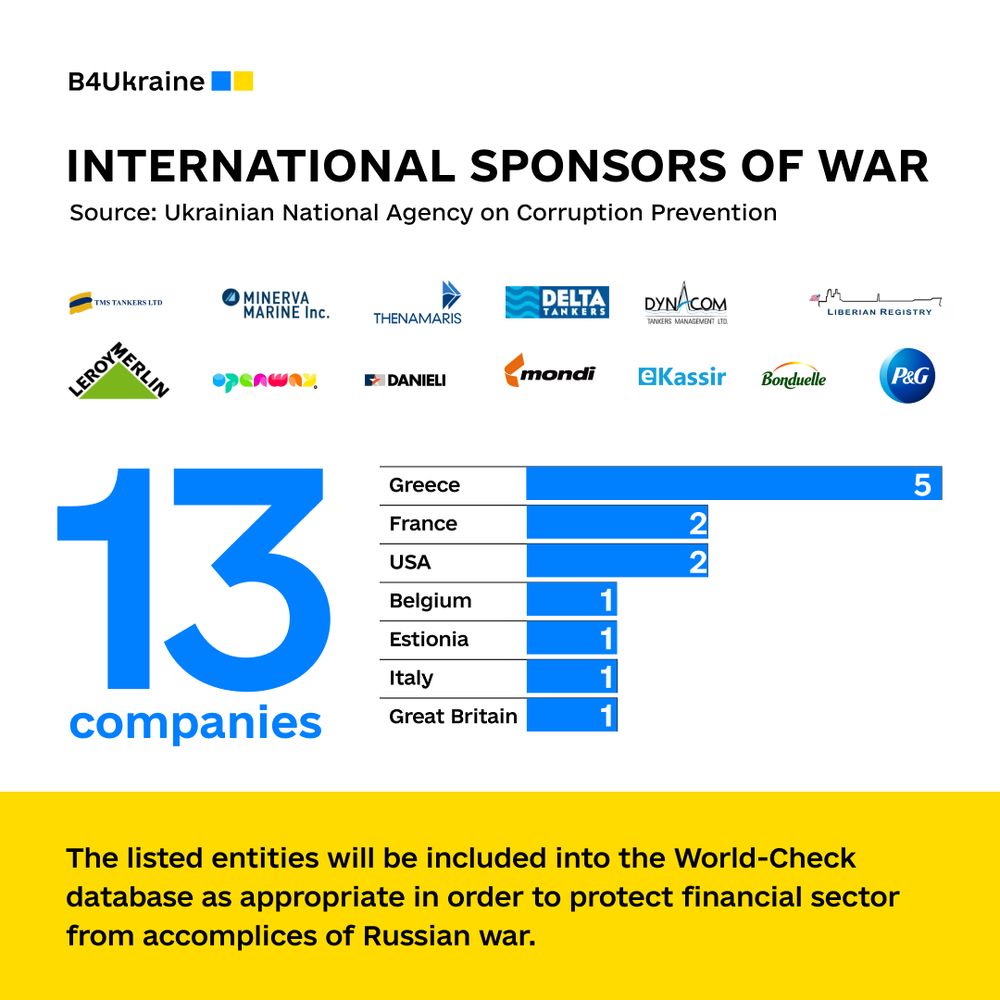
Today you are a trusted brand, best known for making toothpaste and fabric conditioner, tomorrow you are an “international sponsor of war.” Procter & Gamble (P&G), the world’s largest manufacturer of household chemicals and personal care products, has become the latest international company to fall into Ukraine’s anti-graft agency list of international sponsors of war.
The listing of international sponsors of war also includes OpenWay Group, Danieli, TMS Tankers Ltd., Minerva Marine Inc., Thenamaris Ships Management, Delta Tankers Ltd., Dynacom Tankers Management Ltd., Leroy Merlin, Mondi Group/Mondi PLC, eKassir, Liberian International Ship & Corporate Registry, Bonduelle.
Agia Zagrebelska, the head of the direction of minimization of corruption risks in the sanctions policy of the National Agency on Corruption Prevention, told Forbes that P&G was targeted because despite a statement about scaling back its presence in Russia to “focus on basic health, hygiene, and personal care items” its income increased this year, “and accordingly, the taxes they pay to the Russian budget have increased.”
The P&G case should make every company that continues to earn billions in Russia consider that they are at risk of being considered a sponsor of war too. Companies featured on the list will now be flagged as “international sponsors of war” within WorldCheck, a due diligence and know your customer database. Perhaps the bigger impact, however, is reputational. Inclusion in Ukraine’s official list of international sponsors of war will affect companies’ reputations for years to come. This stain cannot be washed away by Ariel or Tide, for P&G it is already part of history. For any company working with consumers or other businesses, losing reputation eventually leads to losing market share and profits.
“President Putin’s legislative efforts to enlist companies in the war effort against Ukraine combined with the Russian military’s ongoing violations of international law, make Russia one of the most hostile markets for multinational companies in modern times. A large proportion of U.S. companies are playing a potentially lethal game of corporate Russian roulette by willfully accepting exposure to an array of regulatory, legal, reputational, and financial risks by continuing to do business and utilize supply chains under military control in Russia. They are ignoring overwhelming risks to people and portfolios in pursuit of marginal profits. Now is the time for the Biden Administration to issue a business advisory on Russia and clearly convey these heightened material risks to U.S. companies, just as it has in Myanmar, Xinjiang, Cambodia, and Sudan,” — says Richard Stazinski, Member of the B4Ukraine Steering Committee and Executive Director of Heartland Initiative.
Committing to exit Russia now is the last chance to save the reputation, avoid legal risks, and do the right thing.